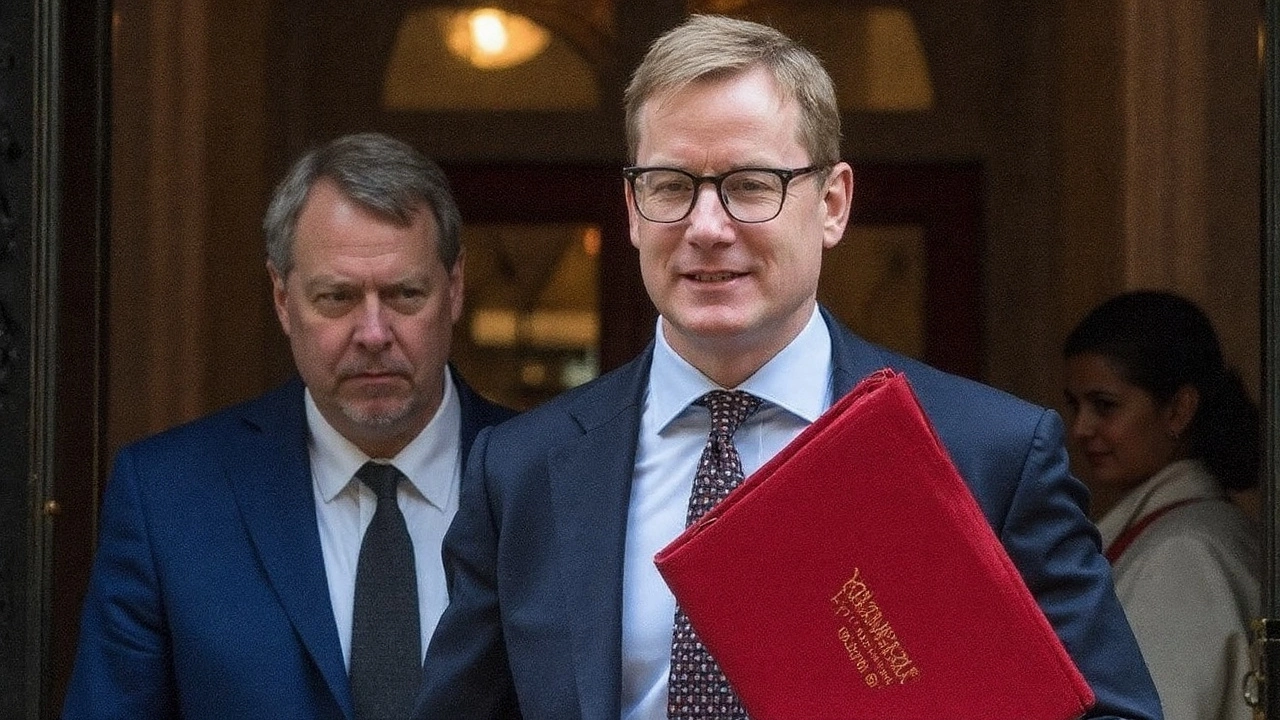
A senior cabinet resignation over a tax shortfall is rare. But on September 5, 2025, Angela Rayner stepped down as deputy prime minister and housing secretary after an independent inquiry found she broke ministerial standards by underpaying stamp duty on a second home in Hove. The saving was about £40,000, according to officials briefed on the matter.
Rayner had already admitted the error earlier in the week and referred herself to the independent adviser on ministerial standards, Sir Laurie Magnus. His report to Prime Minister Keir Starmer said she acted in good faith but should have sought specialist advice before completing the purchase. The prime minister accepted her resignation with “real sadness.”
What triggered the resignation
The case turns on stamp duty land tax (SDLT), the levy paid on property purchases in England and Northern Ireland. Rates are tiered by price band, and there is an extra surcharge on additional properties. The rules can be thorny, especially where trusts or questions about main residence status are involved. That is exactly where this deal appears to have gone wrong.
Rayner bought a property in Hove earlier this summer. She later accepted she had underpaid the tax. In a letter to Keir Starmer, she said she regretted not seeking “additional specialist tax advice,” and blamed “inaccurate” guidance she received at the time. She said a court-established trust for her disabled son added complexity to the transaction and influenced her understanding of how the purchase should be taxed.
On Wednesday, she went public, acknowledged the mistake, and asked the ethics adviser to investigate. By Friday, Magnus had delivered his report. His conclusion: while there was no intent to mislead, the failure to get expert advice fell below the standard expected of a senior minister. That finding made her position impossible.
Starmer, who had defended Rayner as the story grew, accepted her decision. In a handwritten note, he praised her record and signed off “with very best wishes and with real sadness.” Within hours, the government confirmed a limited reshuffle: Foreign Secretary David Lammy became deputy prime minister. The housing brief will be reassigned following further consultations, government sources said.
Stamp duty has long been a minefield. The surcharge on second homes, introduced in 2016, was designed to cool buy-to-let demand and give first-time buyers a fairer shot. But it also created edge cases: temporary overlaps when moving home, shared ownership arrangements, and transactions involving trusts. Accountants say these can change the rate owed or trigger reliefs that are easy to miss without specialist advice.
The inquiry’s framing—good faith but poor judgment—echoes recent standards cases. The ministerial code doesn’t require perfection, but it does require clarity, transparency, and proactive steps to correct mistakes. By referring herself, Rayner tried to meet that test. The adviser’s report suggests that was necessary but not sufficient.
Politically, the optics were rough. Rayner has been one of Labour’s bluntest voices on tax fairness, often criticising avoidance and sloppy standards in public life. That record made any error on her own tax affairs an open goal for opponents who accused her of hypocrisy. Backers argue she took responsibility quickly, cooperated with the inquiry, and resigned when the verdict landed. Both things can be true at once.
Reactions split along familiar lines. Some voters praised her for fronting up and resigning without a drawn-out fight. Others saw the size of the shortfall—tens of thousands of pounds—and said she had to go. On social media, supporters highlighted the role of the family trust and the adviser’s good-faith finding. Critics said a senior minister should have known better and hired a specialist before signing.
Rayner’s resignation removes a central figure in Starmer’s top team. She has been Labour’s deputy leader since before the 2024 election win and a key political operator, with deep roots in the party’s trade union wing and a reputation for cutting through on TV. Her housing brief put her at the front of the government’s push to boost building and tackle the shortage of affordable homes.

What this means for Starmer’s government
The fallout touches three areas: standards, policy momentum, and party management.
On standards, the case underscores how the ministerial code is being enforced under this government. The independent adviser investigated quickly. The prime minister published the result and took action. After years in which similar cases dragged on, the speed here sends a message: the rules apply, even to the second most senior figure in government.
On policy, the timing is awkward. Housing is a flagship issue. The government wants faster planning decisions, more social homes, and higher delivery in areas with chronic shortages. Officials now have to keep that programme moving without its most visible champion. The department will expect minimal disruption, but momentum can slip when leadership changes midstream.
On party management, Rayner’s departure reshapes Labour’s internal balance. She bridged several wings of the party and had credibility with grassroots activists. David Lammy’s appointment as deputy prime minister answers the immediate question of continuity at the top table, but it leaves a gap on the housing front and in the political operation she helped run.
There are wider echoes too. Westminster has been here before. In 2023, Conservative Party chair Nadhim Zahawi lost his job over his own tax affairs after the ethics adviser found “serious” breaches. That episode, like this one, showed how personal financial mistakes can become constitutional issues when they raise questions about judgment and transparency.
Why do stamp duty errors cause such political damage? Because they cut to fairness. If ministers are perceived to get a better deal—or fail to pay what others must—trust falls. Even where intent isn’t proven, the standard for those in charge is higher: get the right advice, disclose problems early, and correct them fast. That is the bargain the public expects.
Rayner’s defenders point out that she referred herself, cooperated, paid what she owed, and resigned when told she fell short. Her critics say the size of the saving suggests the error should have been obvious and that she should have hired a specialist before completion. The adviser’s report sits somewhere in the middle: good faith, poor process, not compatible with remaining in post.
The personal story behind the error—the court-established trust for her disabled son—adds human complexity. Family financial arrangements can muddy property transactions in ways buyers do not anticipate. But the code judges outcomes, not intentions. The rule for ministers is simple: if in doubt, get impartial, expert advice and document it.
Inside government, attention now turns to continuity. Senior officials will aim to protect key housing bills and planning reforms already scheduled for the autumn. Expect a caretaker to steady the department while Starmer picks a permanent replacement. The prime minister will want a minister who can keep local authorities, developers, and communities at the table on a programme that was always going to be politically fraught.
In opposition, Conservatives and smaller parties will keep pressing for details: the precise timeline of the purchase, when advice was sought, when the error was spotted, and when the full amount was paid. Standards committees in Parliament may also look at whether clearer guidance is needed on property transactions involving trusts and second homes, as these cases crop up repeatedly.
Outside Westminster, the public mood is more practical: did she pay what she owed, and can the government now get back to delivering on housing and the cost of living? The answer to the first appears to be yes. The second depends on whether the reshuffle restores focus quickly or opens new cracks at the top.
As for Rayner, she leaves with a record that includes driving the government’s early housing push and shaping the political strategy that helped Labour back into power in 2024. Allies say she could return to frontline politics in time if trust is rebuilt and the government needs her voice again. That is not today’s decision. Today’s story is simpler: a senior minister fell short on a personal tax bill, owned it, and left office—reminding everyone else around the Cabinet table that the standards bar is high and getting higher.
The lesson for ministers is straightforward. Property deals are messy, and tax law is rarely intuitive. If your situation involves a second home, a trust, or anything out of the ordinary, you treat it like a live wire: pause, seek specialist advice, document decisions, and disclose early. It is tedious, but it keeps careers from ending on a Friday afternoon.





